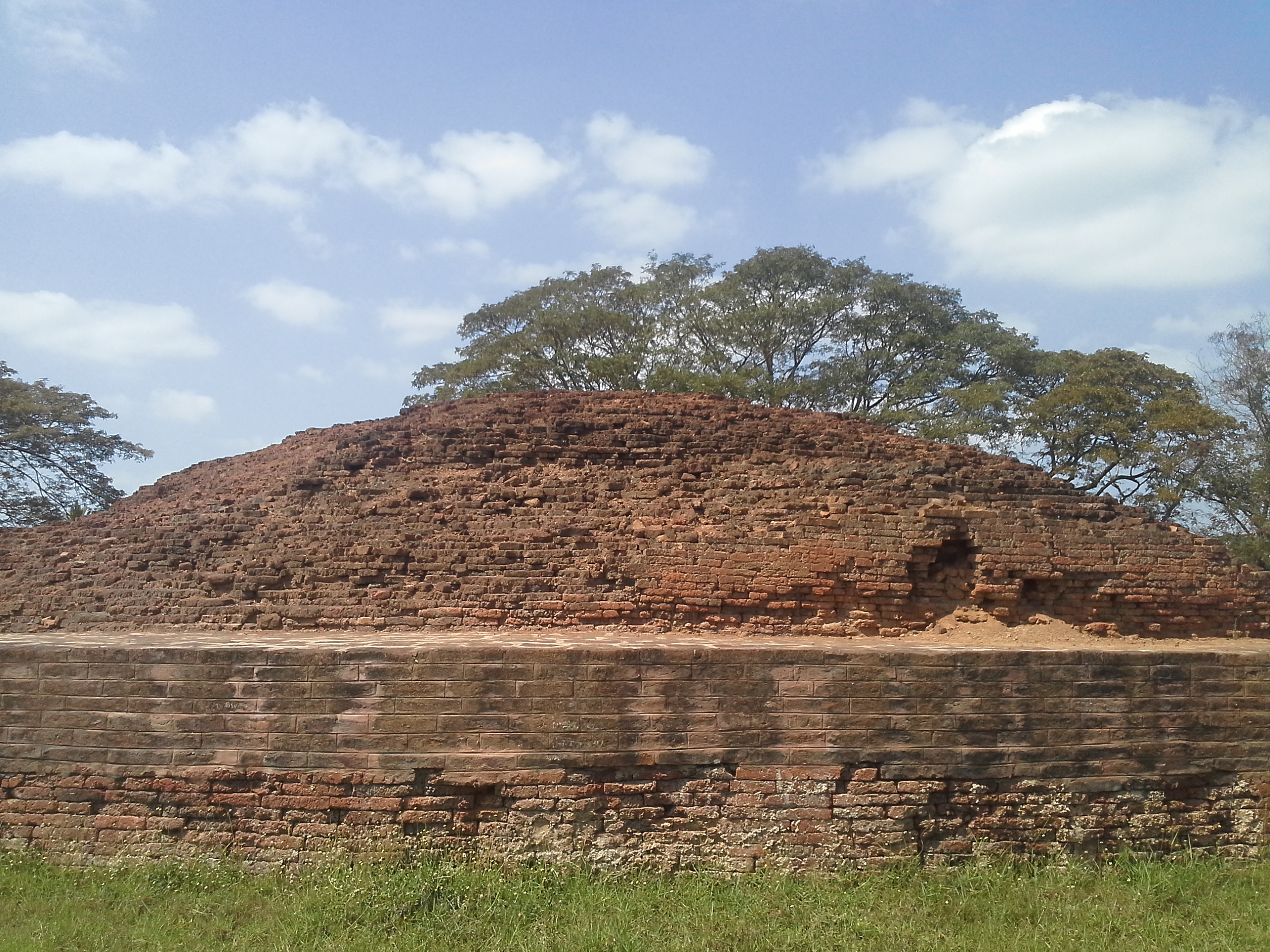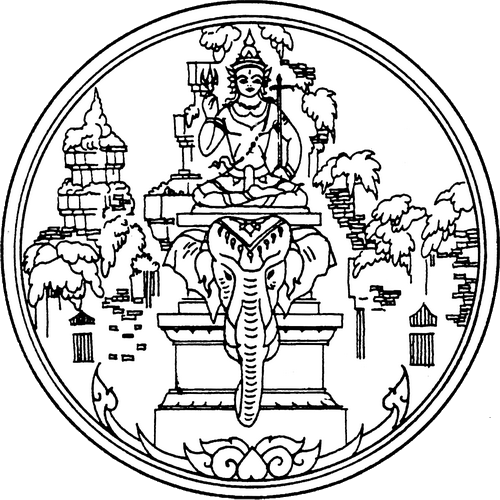|
Beerappa
Beerayya or Bheerappa is a god of Kuruma community in India. This community celebrates Beerayya Patnalu, which is celebration of God Beerayya Marriage for every five, seven, or nine years. Beernollu are the traditional priests of kuruma or Kuruba Community and perform the marriage of Beerayya with Kamaraathi. Temple Kuruma, or Kuruba, is a caste in Telangana and Andhra Pradesh. Kuruma people worship Beeraiah as their caste god. Kuruma's celebrate the festival called Beerayya Patnalu which is a celebration like ''Jathara'' every 5–10 years. This is the biggest festival in the Kuruma community. Relatives, near and far and guests are invited to this festival. The main temple was situated in Karnataka state, Yadagiri Mandal, Hayyal(B) village Beeraiah Patnalu Beeraayya Patnalu is celebrated for 9 days. Events include Pochamma Bonalu, Paalu neyyi, Ganga Bonam or Jaldi, bonalu, Beerayya Marriage laggam patnam, Sarugu, nagavelli patnam, Post marriage Oggu Katha, Yetti mullelu and ... [...More Info...] [...Related Items...] OR: [Wikipedia] [Google] [Baidu] |
Kuruba
Kuruba is a Hindu caste native to the Indian state of Karnataka, Tamil Nadu, Andhra Pradesh and Telangana. They are the third-largest caste group in Karnataka. Traditionally, these are shepherds who used to do the work of sheep/goat and animal husbandry and agriculture, in which they especially raised mixed herds of sheep and goats and cattle. Etymology The term ''kuruba'', meaning ''shepherd'', is derived from ''kuri'', meaning ''sheep'' in Kannada. Shepherding was traditionally their primary occupation and still is for many, who lead a nomadic lifestyle. History Oral traditions of the Kurubas or Kuruma indicate their descent from Neolithic farming villages in South India which also kept cattle. Oral traditions indicate some of these original cattle-keeping agriculturalists branched off into new habitats and quickly came to rely on sheep pastoralism, absorbing Mesolithic hunter-gatherers. Rituals associated with hunting presumably came from the integration of these hunter-ga ... [...More Info...] [...Related Items...] OR: [Wikipedia] [Google] [Baidu] |
Oggu Katha
Oggu Katha or Oggukatha is a traditional folklore singing, praising and narrating the stories of Hindu gods Mallikarjuna Swamy, Mallana, Beerappa and Yellamma. It originated among the Golla (yadav) and Kuruma (Kuruba)communities, who devoted themselves to the singing of ballads in praise of Lord Shiva (also called Mallikarjuna). These tradition-loving and ritual-performing community moves from place to place, narrating the stories of their caste gods. Oggus are the traditional priests of the Golla Yadav, Kurumas and perform the marriage of Mallanna with Bhramaramba. Etymology The story narrated about Lord Mallanna or Mallikarjuna Swamy using the instrument "Jaggu"(damarukam) is known as Oggu Katha. Used at the beginning of each story and also at the marriage festival of Lord Mallanna. Founder of Oggu kathalu was Sri. Vallam Pedda Veeraiah which was continued by his son Vishwa Vikyatha Oggu Katha Sarva Bhoumulu Vallam Sathaiah. The stories, scripts, dialogues and lyrics on Komm ... [...More Info...] [...Related Items...] OR: [Wikipedia] [Google] [Baidu] |
Biroba
Biroba is a form of Hindu god Shiva. Biroba is the kuldaivat of Dhangars of Maharashtra State. There are many temples of Biroba in villages of Maharashtra. Also Karnataka in ijapura dist: aluk:ChadachanShiradon And also in Hunnur (taluk: Mangalwedha), Arewadi (Dist: Sangli), Katphal (taluk: :Sangola, Anusewadi in Atpadi, Pattankodoli, Pangari(Satara) there are temple of Biroba. Biroba is brother of Mayakka devi. The god Mahalingraya or Mahalingeshwar is the student of Biroba (called Birling in Karnataka) and their temples are situated on the Maharashtra and Karnataka border in Huljanti. Festival (i.e. jatra in Marathi) of both gods is celebrated for five days from the first day of Hindu festival Diwali. Temple of Biroba: * Virbhadra Mandir, Sakur Mandhave, Sangamner, Ahemadnagar, Maharashtra * Biroba mandir, Arewadi, Kavthe mahankal, Sangli * Vitthal-Birdev mandir, Pattankodoli, hatkangle, Kolhapur * Biroba mandir, Hunnur. * Mahalingraya-Biroba mandir, Huljanti, Mangalvedh ... [...More Info...] [...Related Items...] OR: [Wikipedia] [Google] [Baidu] |
Telangana
Telangana is a States and union territories of India, state in India situated in the Southern India, south-central part of the Indian subcontinent on the high Deccan Plateau. It is the List of states and union territories of India by area, eleventh largest state by area and the List of states and union territories of India by population, twelfth most populated state in India, according to the 2011 Census of India, 2011 census. On 2 June 2014, the area was separated from the northwestern part of United Andhra Pradesh as the newly formed States and union territories of India, state of Telangana, with Hyderabad as its capital. Telugu language, Telugu, one of the classical languages of India, is the most widely spoken and the primary official language of Telangana state, whereas Urdu is recognised as the second official language. Additionally, several tribal languages such as Gondi, Kolami, Koya and Lambadi are spoken in different regions of the Telangana state. The economy of ... [...More Info...] [...Related Items...] OR: [Wikipedia] [Google] [Baidu] |
Andhra Pradesh
Andhra Pradesh (ISO 15919, ISO: , , AP) is a States and union territories of India, state on the East Coast of India, east coast of southern India. It is the List of states and union territories of India by area, seventh-largest state and the List of states and union territories of India by population, tenth-most populous in the country. Telugu language, Telugu is the most widely spoken language in the state, as well as its official language. Amaravati is the state capital, while the largest city is Visakhapatnam. Andhra Pradesh shares borders with Odisha to the northeast, Chhattisgarh to the north, Karnataka to the southwest, Tamil Nadu to the south, Telangana to northwest and the Bay of Bengal to the east. It has the Coastline of Andhra Pradesh, third-longest coastline in India at about . Archaeological evidence indicates that Andhra Pradesh has been continuously inhabited for over 247,000 years, from early archaic Hominini, hominins to Neolithic settlements. The earliest r ... [...More Info...] [...Related Items...] OR: [Wikipedia] [Google] [Baidu] |
Pochamma
Mahur Renuka, also known as Yellamma Devi, is a Hindu mother goddess venerated predominantly in the South Indian states of Karnataka, Tamil Nadu, Telangana, Andhra Pradesh, and Maharashtra. She is regarded as the mother of Parashurama, the sixth avatar of the god Vishnu. Originally named Renuka, she attained the status of a mother goddess in regional traditions, later becoming associated with the legend of Parashurama in Hindu mythology. Names Renuka is venerated under numerous regional appellations, including Aai Yellamma, Ekvira, Yamai, Ellai Amman, Padmakshi Renuka, Ucchangi Mariamma, and Ellai Amma Mahar. She is worshipped in the Hindu pantheon as a goddess associated with marginalized communities and is often regarded as the divine protector of the oppressed. Devotees revere her as Jagadamba (Mother of the Universe), and in Marathi traditions, she is invoked with the phrase "उदे गं आई उदे" (''Ude Gāṁ Āī Ude'', "Rise, O Mother, rise"). Other epith ... [...More Info...] [...Related Items...] OR: [Wikipedia] [Google] [Baidu] |
Bonalu
Bonalu (Telugu: బోనాలు) is a traditional Hindu festival centred on the Goddess Mahakali from Telangana. This festival is celebrated annually in the twin cities of Hyderabad and Secunderabad, as well as in other parts of the state. It is celebrated in the month of Ashada Masam, which is around July and/or August. Special "poojas" (worship/ ceremonies) are performed for Yellamma (one of the many regional forms of Mahakali) on the first and last day of the festival. The festival is also considered a thanksgiving to the Goddess for fulfillment of vows. The word ''Bonam'' is a contraction of the word ''Bhojanam'', a Sanskrit loanword which means a meal or a feast in Telugu. It is an offering to the Mother Goddess. Women prepare rice cooked with milk and jaggery in a new brass or earthen pot adorned with neem leaves, turmeric, vermilion and a lit lamp on top of the pot. Women carry the pots on their heads and make an offering of the ''Bonam'' along with turmeric-vermilion ... [...More Info...] [...Related Items...] OR: [Wikipedia] [Google] [Baidu] |
Magic (supernatural)
Magic, sometimes spelled magick, is the application of beliefs, rituals or actions employed in the belief that they can manipulate natural or supernatural beings and forces. It is a category into which have been placed various beliefs and practices sometimes considered separate from both religion and science. Connotations have varied from positive to negative at times throughout history. Within Western culture, magic has been linked to ideas of the Other (philosophy), Other, foreignness, and primitivism; indicating that it is "a powerful marker of cultural difference" and likewise, a non-modern phenomenon. During the late nineteenth and early twentieth centuries, Western intellectuals perceived the practice of magic to be a sign of a primitive mentality and also commonly attributed it to marginalised groups of people. Aleister Crowley (1875–1947), a British occultist, defined "magick" as "the Science and Art of causing Change to occur in conformity with Will", adding a 'k' ... [...More Info...] [...Related Items...] OR: [Wikipedia] [Google] [Baidu] |
Hindu Gods
Hindu deities are the gods and goddesses in Hinduism. Deities in Hinduism are as diverse as its traditions, and a Hindu can choose to be polytheistic, pantheistic, monotheistic, monistic, even agnostic, atheistic, or humanist.Julius J. Lipner (2009), Hindus: Their Religious Beliefs and Practices, 2nd edition, Routledge, , p. 8; Quote: "(...) one need not be religious in the minimal sense described to be accepted as a Hindu by Hindus, or describe oneself perfectly validly as Hindu. One may be polytheistic or monotheistic, monistic or pantheistic, even an agnostic, humanist or atheist, and still be considered a Hindu." The terms and epithets for deities within the diverse traditions of Hinduism vary, and include Deva (Hinduism), Deva, Devi, Ishvara, Ishvari, Bhagavan, Bhagavān and Bhagavathi, Bhagavati. The deities of Hinduism have evolved from the Vedic era (2nd millennium BCE) through the medieval era (1st millennium CE), regionally within Nepal, Pakistan, India and in Sout ... [...More Info...] [...Related Items...] OR: [Wikipedia] [Google] [Baidu] |





